Most Important Years In Human History
Beginning of Greek civilization: essential to Western heritage and the root of mathematics, philosophy, political thinking, and medicine.
New Kingdom period of Ancient Egypt and the formation of Kush at this time. Two jet black African achievements.

The end of the bloc in Eastern Europe, signifying the beginning of the end of the Soviet Union (which dissolved in '91). The fall of the Berlin Wall, the indictment of "junk bond" king Michael Milken, and the development of a little invention called the internet.
Fall of the Soviet Union, ending the hundred-year history of social ideology that caused the loss of hundreds of millions of lives and human potential.
Collapse of Communist regimes in Europe: marks the end of the long communist experiment. Asian communism is also transformed.
Well, to be fair, this has definitely had the most effect on mankind ever. Even if you are an atheist, you cannot deny that. The moon landing is said to have made mankind eternal, but there is only one who can do that and He was born this year.
Jesus's birth changed the lives of hundreds of billions of people. It's the most important event in history by far. That's why our calendar is based on it.
Birth of Jesus Christ, founder of the many branches of Christianity. The exact date is disputed.
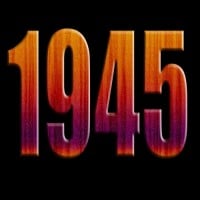
In 10,000 years, only two events on this list will be remembered: man walking on the moon in 1969 and the advent of nuclear warfare in 1945. The rest is nothing more than passing interest to the millennia.
I choose 1945 over 1969 because the major peace treaties and political lines of 1945 are still important to us today. 1969 can only boast Woodstock as its second-best event. Also, maybe, just maybe, 1945 was the first time some non-terrestrial intelligences started paying closer attention to us.
Almost 80 years ago, this is where nuclear weapons were invented.
 In 1969, humanity achieved a monumental milestone as NASA's Apollo 11 mission successfully landed the first humans, Neil Armstrong and Edwin "Buzz" Aldrin, on the Moon. The Woodstock Festival, a symbol of the counterculture movement, brought together hundreds of thousands of people for a celebration... read more
In 1969, humanity achieved a monumental milestone as NASA's Apollo 11 mission successfully landed the first humans, Neil Armstrong and Edwin "Buzz" Aldrin, on the Moon. The Woodstock Festival, a symbol of the counterculture movement, brought together hundreds of thousands of people for a celebration... read more Humans first set foot on the moon, which was the greatest achievement in human history. Broadway Joe helps the Jets win the Super Bowl. The Amazing Mets win the World Series. Woodstock. Best year ever! And I was there, but I don't remember.
Humans walk on another celestial body. This event marked the beginning of humanity's expansion into the cosmos and set the stage for later advances in space-faring technology.
The first 12,000 years of civilization were mankind's baby steps. When we first reached the moon, humans became a space-faring species. That will be our future for the rest of eternity.

Beginning of the modern world. The United States set the precedent for all new world countries as they sought out independence and forever altered the course of history.
Duh. Anyone who thinks otherwise just hates America irrationally. I can't even begin to explain how much the United States has given and helped the rest of the world.
After the United States declared its independence, other nations oppressed by kings realized they could rebel. It was the beginning of the end of imperialism.
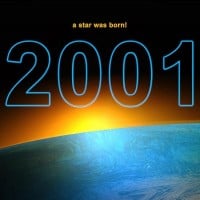 2001 (MMI) was a common year starting on Monday of the Gregorian calendar, the 2001st year of the Common Era (CE) and Anno Domini (AD) designations, the 1st year of the 3rd millennium and the 21st century, and the 2nd year of the 2000s decade.
2001 (MMI) was a common year starting on Monday of the Gregorian calendar, the 2001st year of the Common Era (CE) and Anno Domini (AD) designations, the 1st year of the 3rd millennium and the 21st century, and the 2nd year of the 2000s decade. Microsoft released Windows XP, Wikipedia launched, release of Microsoft Internet Explorer 6, 128-bit strong encryption. A very important milestone for the internet.
The year of Windows XP release and Mac OS X release, marking a big revolution in computer and internet history.
The first year of the third millennium and 21st century. The first new millennium and century celebration after the world started using the common era and global calendar.
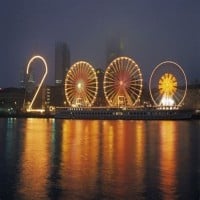 The year 2000 (MM) was a century leap year that started on a Saturday according to the Gregorian calendar. It marked the 2000th year of the Common Era (CE) and Anno Domini (AD) designations. It was the last year of the 2nd millennium and the 20th century, and the 1st year of the 2000s decade.
The year 2000 (MM) was a century leap year that started on a Saturday according to the Gregorian calendar. It marked the 2000th year of the Common Era (CE) and Anno Domini (AD) designations. It was the last year of the 2nd millennium and the 20th century, and the 1st year of the 2000s decade. Started a new era of technology with upcoming corporations like Google, Facebook, Amazon, and more.
Everything changes with the discovery of the New World and an era of colonialism begins. This leads to the establishment of the USA and Canada. Mexico, Argentina, and other Hispanic nations. Australia and New Zealand. It also changes the face of Africa and Asia forever, eventually leading to the globalization that made World Wars and our modern world's culture possible.
I think if this event hadn't happened, the world would be completely different. Imagine the US emerging on the international theater with the Industrial Revolution, probably not much different from the colonies of the British Empire in the 1800s.
The Newcomers

The printing press was a revolutionary invention that allowed for the fast spread of ideas across the world. Michael Hart claims that Johann Gutenberg, the inventor of the printing press, is the 7th most important person to ever live.
First book printed with movable type: Johannes Gutenberg's revolution in printing technology makes mass-market reading possible.
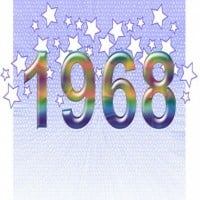

Not #1 but still pretty momentous. The first millennium passage in history after mankind achieved a level of self-consciousness.
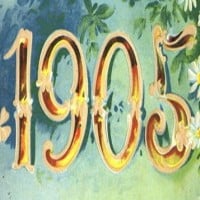
Einstein's theory of special relativity published. It transforms the nature of modern physical knowledge.
Most important year in human history. Without this year, there would be no modern world.
This year belongs to Sir Einstein the great.
I can't believe this is not higher! I consider this the most important year in human history. The start of the French Revolution triggered change in Europe that continues to affect the world. For the first time, a major European power was ruled by a republic, completely changing people's views on the role of government and causing revolutions for the next 100 years.
From the French Revolution came Napoleon, who, by conquering most of Europe, ended up being the catalyst for the unification of Germany and Italy. Without the formation of Germany disrupting the traditional balance of powers, World War I would have never happened. World War I causes World War II, World War II causes the Cold War, and the Cold War has left us where we are now with unstable dictatorships littered across the third world.
The world is as it is today. The foundation of liberal democracies was sown in the French Revolution, and the chain of events that ended up causing World War I and World War II can be considered started by the rise of Napoleon.
Not only the Battle of Hastings this year, but also the Battle of Stamford Bridge a few days earlier and almost as seminal. There is also an argument for 1215 (Magna Carta) in terms of the way laws, democracy, and freedom from tyranny were to be formed in the Western world.
"The Battle of Hastings." Just as much as the rise and fall of the Roman Empire, and even more than WWI and WWII combined, this battle affected the entire course of Western civilization right up to the present day.
 2016 (MMXVI) was a leap year starting on Friday of the Gregorian calendar, the 2016th year of the Common Era (CE) and Anno Domini (AD) designations, the 16th year of the 3rd millennium, the 16th year of the 21st century, and the 7th year of the 2010s decade.
2016 (MMXVI) was a leap year starting on Friday of the Gregorian calendar, the 2016th year of the Common Era (CE) and Anno Domini (AD) designations, the 16th year of the 3rd millennium, the 16th year of the 21st century, and the 7th year of the 2010s decade. Donald Trump changes the way American politics is viewed, and the election brings the American people further apart. Meanwhile, the United Kingdom passes its "Brexit" referendum, confirming that it will leave the European Union. The Paris Climate Accord is signed, an extremely important move in the battle against climate change. The Syrian Civil War rages on, and the world becomes more aware of terrorist events in general.
Definitely the worst year in human history!
Foundation of Rome: the Roman Empire is a pillar of the modern age, producing ideas on justice, law, engineering, and warfare.

Tony Blair became Prime Minister of the United Kingdom, ending 18 years of Conservative rule.
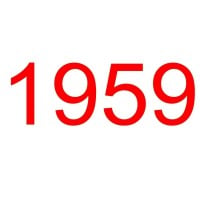
Invention of the silicon chip is the major technical invention of the past century, making possible the computer age.
Fall of the Roman Empire in the West ends 800 years of Roman hegemony. The creation of modern Europe begins.
 2004 was a leap year starting on Thursday of the Gregorian calendar, the 2004th year of the Common Era and Anno Domini designations
2004 was a leap year starting on Thursday of the Gregorian calendar, the 2004th year of the Common Era and Anno Domini designations

June 28th - the unofficial beginning of the 20th century.
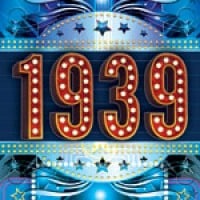
1st of September. Nazi Germany invades Poland, and Great Britain and France declare war on Nazi Germany. This is the date when the 20-year peace ends and the Second World War starts.
This should be #1. It was the year the deadliest war started. Almost no one has forgotten this horrific event. It is the most infamous year.
